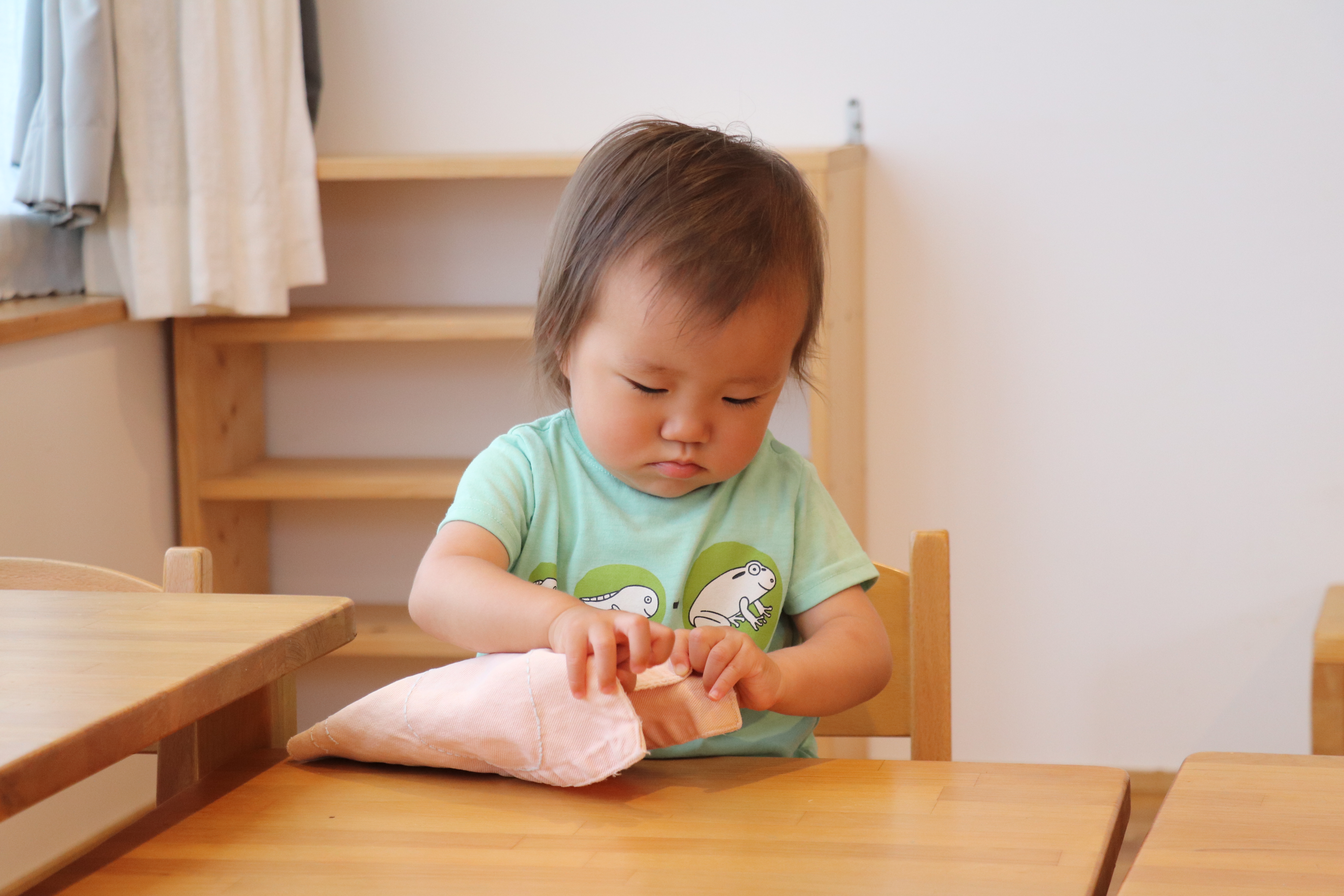
2021.07.01 ”Encounter” and ” Sharing the process of life”
Text : Mina Ito
Starting in May, the new age structure began, Yamanoko home became a home for children between 6 months to 2 and a half years old. Through multiple discussions between Yamanoko and Yamanoko home, among the staff, we had a chance to discuss what kind of childcare we want to provide at Yamanoko home. The children of this age experience a lot of ”encounters” through people and things.
We have discussed what we want to hand over to the children through their first contact with places, people, things, and nature out of their home.
During the meeting, S-san questioned ”What do we mean by handing over?”. Suddenly, as if the atmosphere had changed, everyone began to think about what ”hand over” meant. Isn’t ”handing over” a word meaning that adults give children what they need to do, with the goal that they will be able to do something as a result? What we are aiming for is to enjoy and create a life together with the children through the process of various activities in life, not to see what they can or cannot do after ”handing over”. From this discussion, we came to see that the two pillars of the structured Yamanoko home are ”encounters” and ”sharing the process of life”.
Between May to June, age group and number of Warabi children have changed. The four who have turned 3 years moved to Akebi and four children between age of 1 year 3 to 6 months from the Fuki class moved to Warabi class. At the same time as those four moved to Warabi, the adults, Ichiro-san and I, who had been taking care of Fuki also moved to Warabi class.
It is said in Te Whāriki, the early childhood curriculum born in New Zealand, that ”children grow up in responsive and reciprocal relationships with a variety of people, places and things(*1) ”. When the children transitioned, we tried to
gradually accustom the children to the time flow of Fuki to Warabi. Some children were looking for adults they were familiar with right after the transition of class. In class discussions, we came up with a new grouping that we had never tried before: Fuki → ”Warabees”→Warabi. We believe, by creating an in-between layer, the children would feel a sense of security that they are in a safe base and can adapt to the new time flow, people, and place at a slow pace. It also allowed the adults to pay more attention to what the children were interested in and what was happening in the class, and to value ”sharing the process with the children”. At this time, Ichiro-san and I often talked to each other ”how important it is to slow down and cherish the process of life”. Let me introduce two episodes.
Episode 1
At snack time, Y-chan, a member of Warabi class, took out a mat from the cupboard and prepared a cup, a plate and a snack. N-chan, A-chan, C-chan, the three girls recently moved to Warabi from Fuki, were looking at this and they took out countless mats, held two cups in each hand, stacked plates on top of each other, and carried all these to the table. They were interested in what the older Warabi children are doing in their daily lives and observed them closely. G-kun, a ”warabee,” is always eager to prepare and clean up snacks and meals, and he looks very happy and strong as he carries his cup to his seat with a murmur of ”cup, cup…”. I felt that we, the adults, were ”meeting” the moment of him ”meeting” various people and things for the first time.
At first, the children brought two cups or carried many mats to the table, but they started to carry them one by one and took them out from where they were placed. I felt it was a very rich time for the children to experiment, learn, and develop their own way of doing things in life.
Episode 2
One day, G-kun finished eating his lunch and took his plates one by one to the wagon. When he finished cleaning up his own plate, he looked behind him and found Y-chan’s empty plate and started to clean it up. It seemed that he was still unclear about the difference between his own things and those of others. But I felt that it was a reflection of him belonging to this place. Because he felt he belonged to this place, I felt that his actions developed into contributions and participation to the society of ”Warabees”. And I think that increasing the variety of social participation is a very rich learning experience for the child. ”A life where one can feel a sense of belonging” itself may lead to a sense of ”sharing the process of life” with others and enable rich learning for the child.
I found this wonderful sentence in a diary from a parent. ”At dinner time, when I called out, ’Let’s eat!’, he took out a miso soup bowl from the shelf and gave it to me, saying ’Douzo (Here you go)’. I wonder if it’s because he does the same thing at Yamanoko.” I strongly felt that life in G-kun’s home and Yamanoko are firmly connected to each other and that he is ”sharing the process of life” with his family.
There are times in our lives when we tend to speak too much or fail to notice how fast we are behaving. At such times, I look back at myself and wonder if I missed what the children in front of me are interested in. In Reggio Emilia’s childcare practice, it is said that the most important thing is ”to get close to the child when he or she is engaged in an activity with an interest, and try to understand what the activity ’means’ to the child” and childcare is described as ”creating a meaningful life for the child together (2)”.
While paying attention to children’s interests, I want to ”encounter” and empathize with the many ”encounters” that children have in their daily lives! And I would like to continue to be involved in the process of ”enjoying” and creating life together with them.
References and Citations
(1) Isao Omiya: ”The Improvement of The Quality of Caregiving” P54
(2) Isao Omiya: ”The Improvement of The Quality of Caregiving” P38














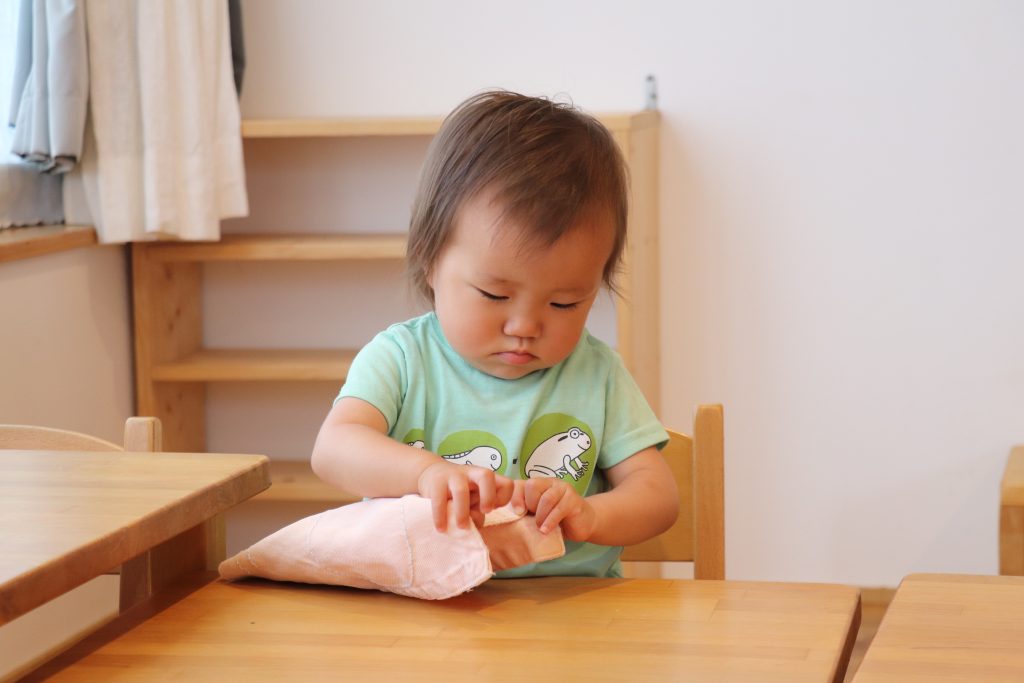
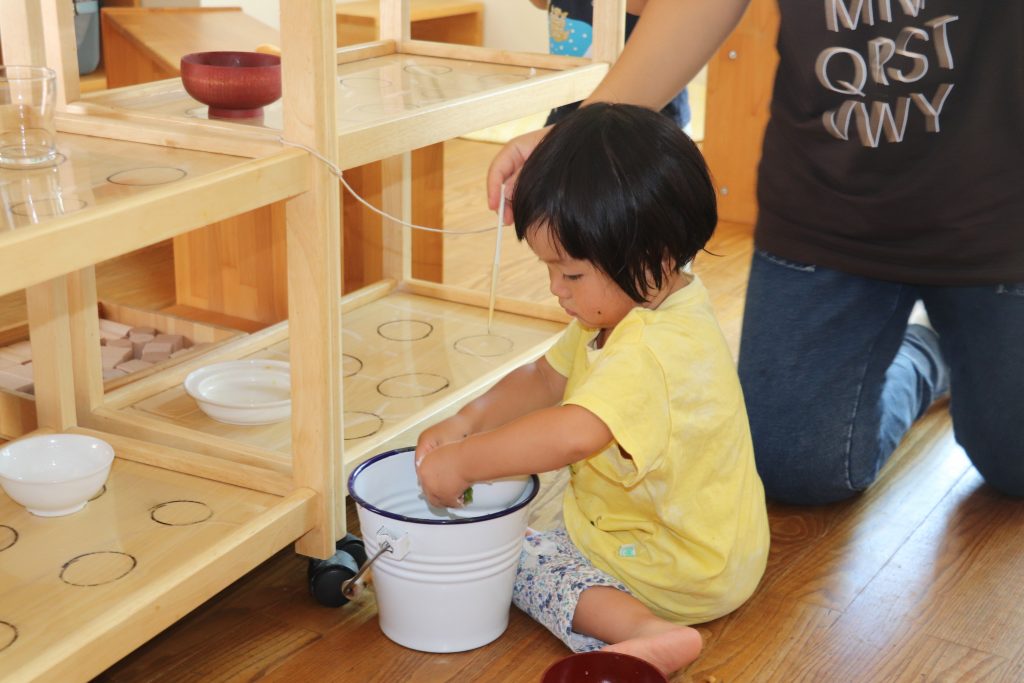
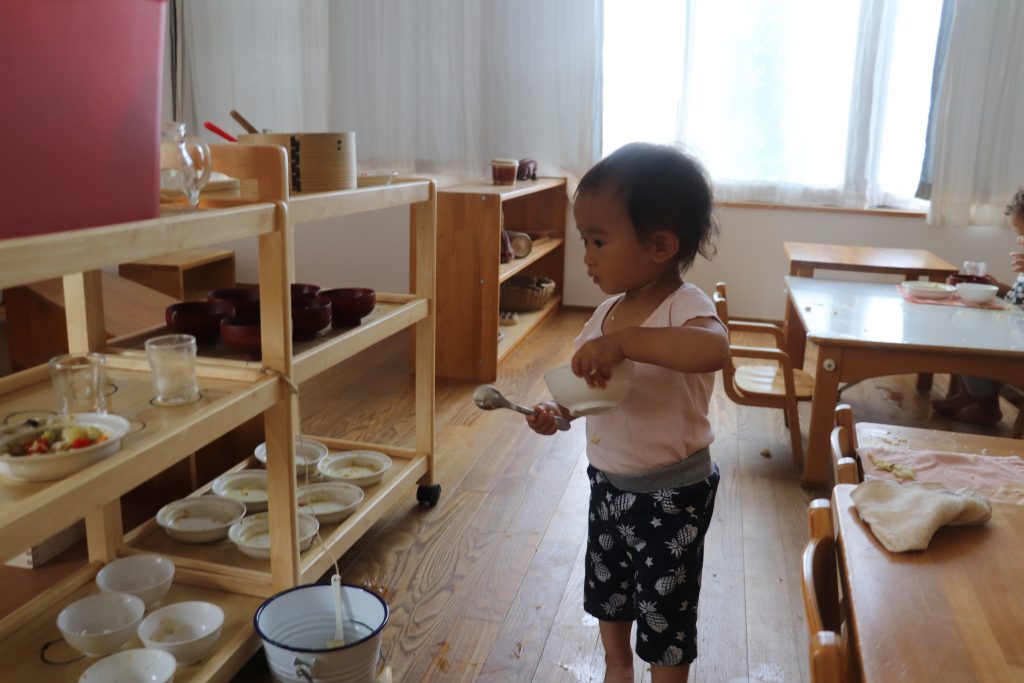
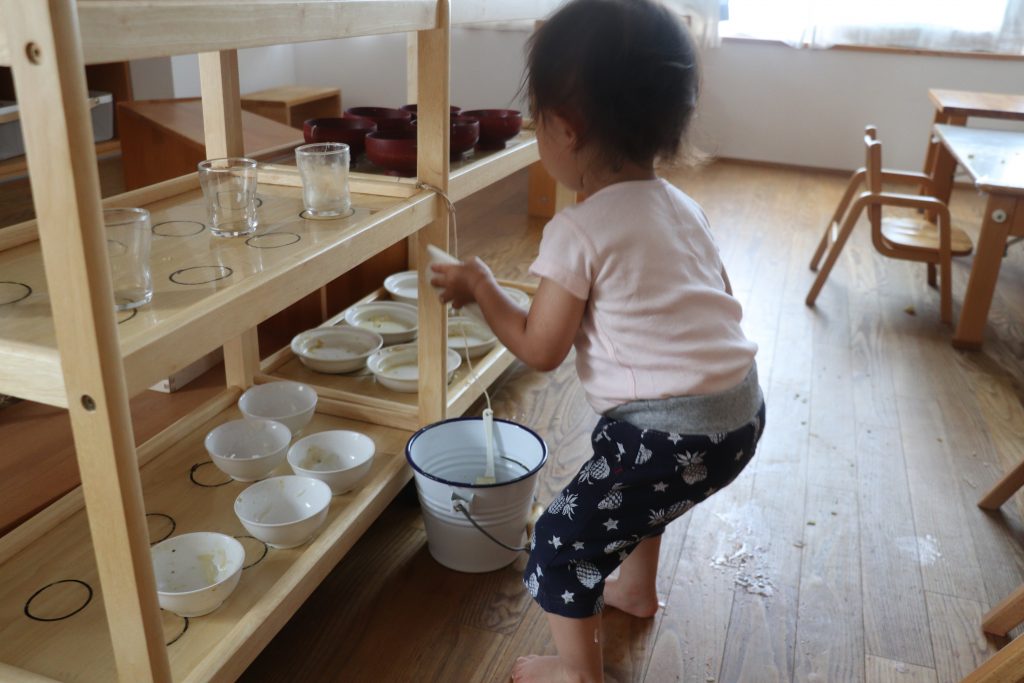
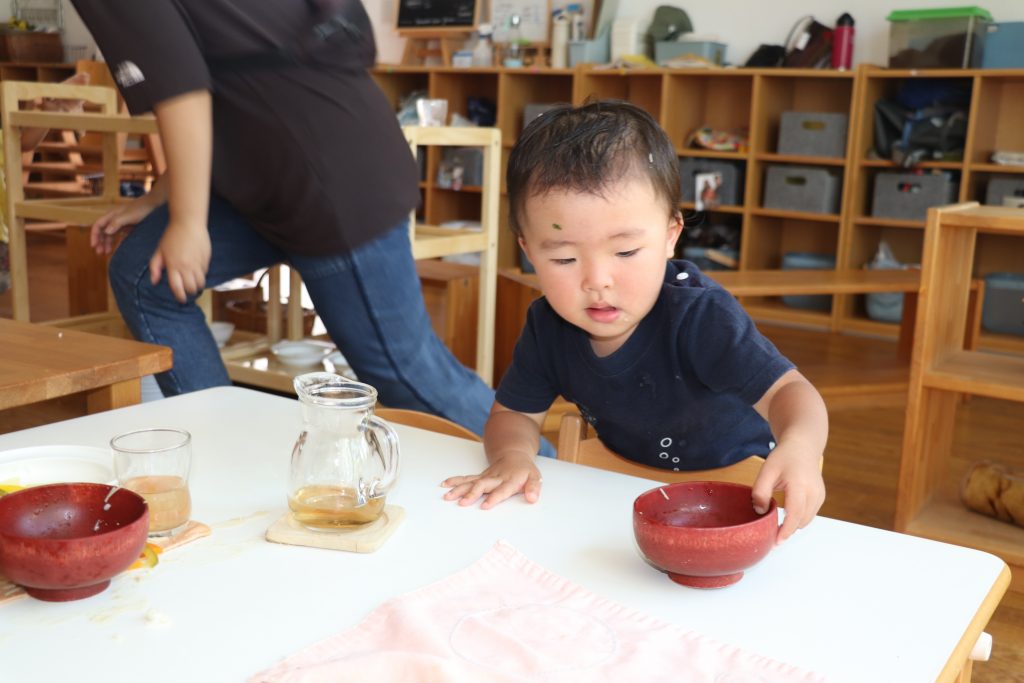
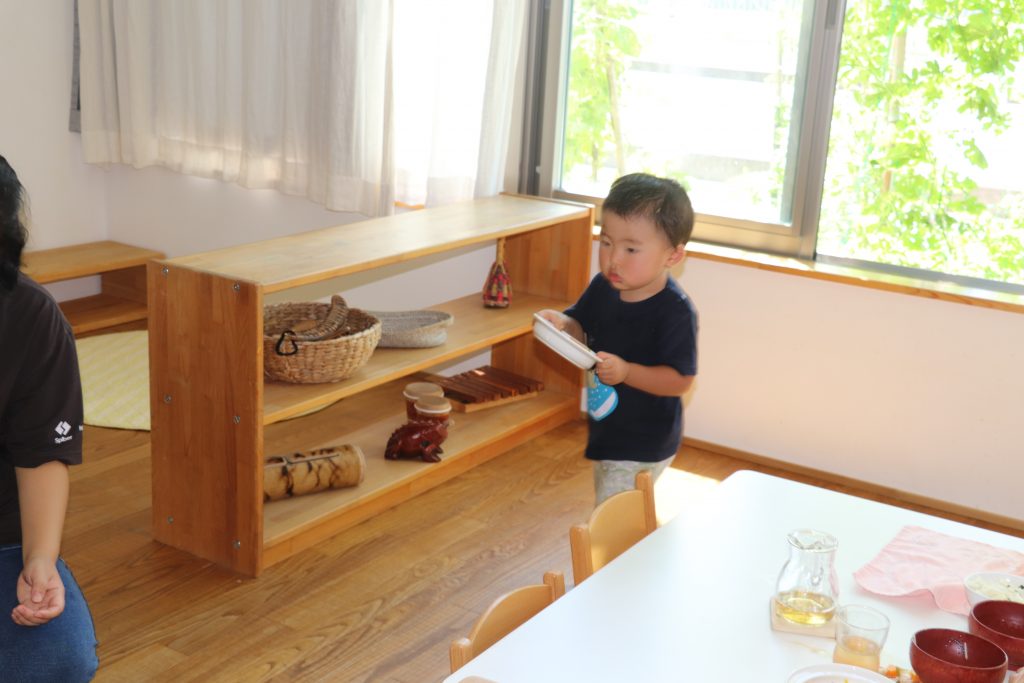
 PREV
PREV